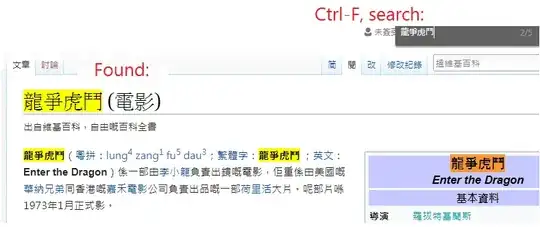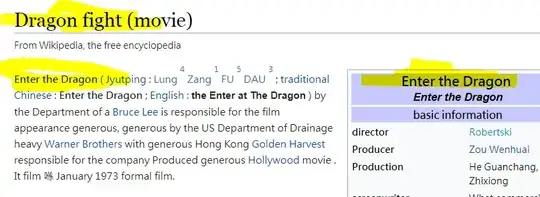I don't understand why Google Translate translates the same text in different ways.
Here is the Wikipedia page of the 1973 film "Enter the Dragon". You can see that its traditional Chinese title is: 龍爭虎鬥. Google translates this as "Dragons fight".
Then, if we go to Chinese Wikipedia page of this film, and search for 龍爭虎鬥 using Ctrl-F, it will be found on several places:
But if we try to copy the hyperlink of Chinese page into Google translate, it will be the word "tiger" from somewhere:
Even more, if we try to translate Chinese page into English using build-in Chrome translate, it will be sometimes translated as "Enter the Dragon", in English manner:
Why it gives different translations for the same Chinese text here?


